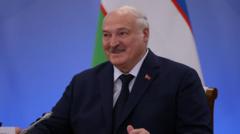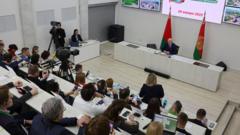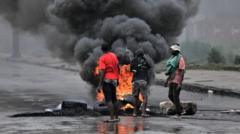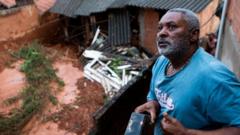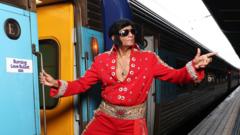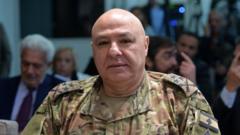In a drastic measure to combat surging gang violence, Trinidad and Tobago has declared a state of emergency amid rising murder rates associated with organized crime.
State of Emergency Declared in Trinidad and Tobago Amid Rising Gang Violence
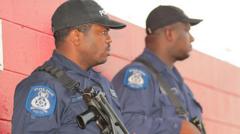
State of Emergency Declared in Trinidad and Tobago Amid Rising Gang Violence
Trinidad and Tobago responds to record-high murder rates with emergency measures in the face of escalating crime.
The twin-island republic, known for its vibrant culture, is grappling with a significant public safety crisis, prompting President Christine Carla Kangaloo to issue an emergency declaration after consultations with Prime Minister Keith Rowley. This comes in response to the nation’s staggering homicide rate, which has surpassed 620 murders this year alone, alarming a population of 1.5 million.
The violence is largely attributed to organized gangs heavily involved in the international drug trade. The US State Department notes that Trinidad’s geographical position—close to Venezuela, with porous borders and direct transport routes to Europe and North America—positions it as a strategic hub for narcotics smuggling.
Recent incidents exemplifying this violent trend include a mass shooting in the impoverished Laventille area where five individuals were killed, allegedly in retaliation for the murder of a notorious gang figure.
The state of emergency grants police enhanced powers to arrest individuals suspected of criminal activities and allows them to conduct searches of public and private premises. The Prime Minister's office emphasized the need to address threats to public safety but clarified that there are no curfew plans in place.
The timing of this emergency declaration raises concerns about the upcoming Carnival celebrations, a highly anticipated event that attracts thousands of international tourists each year. While security measures will be increased, the impact on festivities remains uncertain.
As Trinidad and Tobago approaches its general elections, scheduled by August 2025, the ruling People's National Movement, led by Rowley since 2015, faces an increasing challenge from the opposition United National Congress led by former Prime Minister Kamla Persad-Bissessar. The current climate of violence and governmental response will likely become critical issues in the election discourse, shaping the country’s future in the months ahead.
The violence is largely attributed to organized gangs heavily involved in the international drug trade. The US State Department notes that Trinidad’s geographical position—close to Venezuela, with porous borders and direct transport routes to Europe and North America—positions it as a strategic hub for narcotics smuggling.
Recent incidents exemplifying this violent trend include a mass shooting in the impoverished Laventille area where five individuals were killed, allegedly in retaliation for the murder of a notorious gang figure.
The state of emergency grants police enhanced powers to arrest individuals suspected of criminal activities and allows them to conduct searches of public and private premises. The Prime Minister's office emphasized the need to address threats to public safety but clarified that there are no curfew plans in place.
The timing of this emergency declaration raises concerns about the upcoming Carnival celebrations, a highly anticipated event that attracts thousands of international tourists each year. While security measures will be increased, the impact on festivities remains uncertain.
As Trinidad and Tobago approaches its general elections, scheduled by August 2025, the ruling People's National Movement, led by Rowley since 2015, faces an increasing challenge from the opposition United National Congress led by former Prime Minister Kamla Persad-Bissessar. The current climate of violence and governmental response will likely become critical issues in the election discourse, shaping the country’s future in the months ahead.


